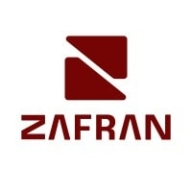


HackerOne and Tenable Vulnerability Management are leading competitors in the cybersecurity sector, both specializing in vulnerability management and security enhancement. HackerOne leads in pricing and customer support, offering cost-effective solutions, while Tenable excels in features, appealing to those prioritizing comprehensive security.
Features: HackerOne is known for its bug bounty programs, community-driven vulnerability hunting, and effective metrics that help organizations identify crucial vulnerabilities. Tenable, however, is distinguished by its extensive vulnerability scanning, detailed reporting, and advanced cloud security features, allowing thorough security assessments and visibility across complex environments.
Room for Improvement: HackerOne could enhance the depth of vulnerability analysis and expand integration options to compete with Tenable’s feature set. Additionally, improving scalability for larger enterprises can make it more attractive. Tenable, on the other hand, could simplify its deployment process, lower its initial cost barriers and continue enhancing user interface usability to reach a broader audience.
Ease of Deployment and Customer Service: HackerOne is recognized for its simple deployment model and dependable customer service, making it easier to integrate with existing systems. Tenable, although offering robust customer support, has a more complex deployment that may require substantial IT resources but provides extensive support for large-scale implementations.
Pricing and ROI: HackerOne is valued for its affordable setup costs and significant ROI due to effective bounty programs and reliable support, appealing to budget-conscious buyers. Conversely, Tenable incurs higher initial expenses but offers substantial ROI through powerful scanning tools and comprehensive security measures, making it suitable for those aiming for thorough protection.
| Product | Market Share (%) |
|---|---|
| Tenable Vulnerability Management | 4.5% |
| Zafran Security | 1.0% |
| HackerOne | 0.5% |
| Other | 94.0% |



| Company Size | Count |
|---|---|
| Small Business | 20 |
| Midsize Enterprise | 2 |
| Large Enterprise | 21 |
Zafran Security integrates with existing security tools to identify and mitigate vulnerabilities effectively, proving that most critical vulnerabilities are not exploitable, optimizing threat management.
Zafran Security introduces an innovative operating model for managing security threats and vulnerabilities. By leveraging the threat exposure management platform, it pinpoints and prioritizes exploitable vulnerabilities, reducing risk through immediate remediation. This platform enhances your hybrid cloud security by normalizing vulnerability signals and integrating specific IT context data, such as CVE runtime presence and internet asset reachability, into its analysis. No longer reliant on patch windows, Zafran Security allows you to manage risks actively.
What are the key features of Zafran Security?
What benefits can users expect from Zafran Security?
In industries where security is paramount, such as finance and healthcare, Zafran Security provides invaluable protection by ensuring that only exploitable vulnerabilities are addressed. It allows entities to maintain robust security measures while allocating resources efficiently, fitting seamlessly into existing security strategies.
HackerOne leads in offensive security with a platform that expertly identifies and remedies security vulnerabilities using AI and a vast researcher community. Trusted by industry giants, it integrates bug bounties, vulnerability disclosure, and code security in software development.
The HackerOne Platform offers a comprehensive suite of services, combining advanced AI technology with the skills of a global security researcher community to address complex security challenges. It facilitates an understanding of vulnerabilities, promoting better remediation practices across software lifecycles. Notable clients include Anthropic, Crypto.com, General Motors, GitHub, Goldman Sachs, Uber, and U.S. Department of Defense. Recognized for innovation and workplace excellence, HackerOne continues to set standards in security solutions.
What key features does HackerOne offer?HackerOne finds significant applications in various sectors with its focus on vulnerability assessment, testing, and responsible disclosure. Organizations utilize it for ethical hacking and efficient vulnerability coordination, making it essential in cybersecurity strategies. The platform's reliability is evident in its ability to identify and document security threats effectively.
Managed in the cloud and powered by Tenable Nessus, Tenable Vulnerability Management (formerly Tenable.io) provides the industry's most comprehensive vulnerability coverage with real-time continuous assessment of your organization. Built-in prioritization, threat intelligence and real-time insight help you understand your exposures and proactively prioritize remediations.
We monitor all Vulnerability Management reviews to prevent fraudulent reviews and keep review quality high. We do not post reviews by company employees or direct competitors. We validate each review for authenticity via cross-reference with LinkedIn, and personal follow-up with the reviewer when necessary.